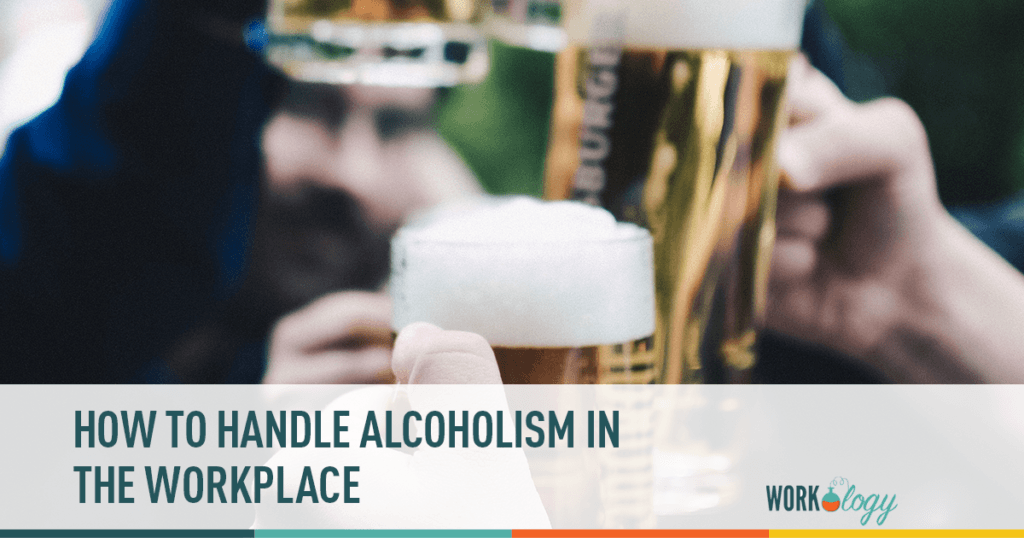You may not want to think about it, but there’s a good chance at least one of your employees is an alcoholic. Approximately 17 million people aged 18 or older have been diagnosed with alcoholism. In 2012, 1.4 million adults entered treatment for alcoholism at a specialized facility. The numbers don’t lie, that is a lot of people.
Before we go any further, it needs to be said: every employee, every workplace and every situation is different. You need to handle each situation on the basis of the facts in front of you, and try to avoid generalized actions.
With that being said, there are two different federal employment laws that typically come up when dealing with an alcoholic employee: the ADA and the FMLA.
Alcoholism in the Workplace: ADA & FMLA
The Americans With Disabilities Act (ADA)
The ADA prohibits employers from discriminating against an employee with a disability. The term “disability” is defined as a physical or mental impairment that substantially limits one or more major life activities. Major life activities including seeing, hearing, eating, sleeping, standing, speaking, breathing, and more. It’s a fairly extensive list.
So, is alcoholism a disability under the ADA? Sadly, there’s no hard and fast answer. It really depends on the situation. The employee’s alcoholism needs to inhibit the employee’s ability to take care of themselves (and while being drunk can make it difficult to stand, that’s the alcohol not the alcoholism). Since it really is a case-by-case determination whether alcoholism is a disability, if your employee tells you that he or she is an alcoholic, you will need to do some digging to find out if one or more major life activities.
In the event you determine (or at least suspect) that your employee’s alcoholism is a disability, that doesn’t mean they have free reign to show up at work blitzed out of their minds. Alcoholic employees are still required to abide by company rules forbidding alcohol during work hours or showing up at work intoxicated. In other words, if your employee returns from a 6 martini lunch, you can fire them, whether they are an alcoholic or not.
On the other hand, you will need to make reasonable accommodations for the employee. Because all employers are different, reasonable accommodations may differ significantly. It may be reasonable for you to change an employee’s start time to allow him or her to attend Alcoholics Anonymous meetings or allow the employee to leave work early to attend outpatient treatment.
The Family Medical Leave Act (FMLA)
The FMLA requires covered employers to provide leave for employees if they or a family member has a serious health condition. The FMLA defines a “serious health condition” as a period of treatment in inpatient care, incapacity requiring an absence of 3 or more days under the continuing treatment of a health care provider and incapacity due to a chronic serious health condition. A quick read of the requirement makes it clear that, for many alcoholics, alcoholism could be considered a serious health condition.
If your employee’s alcoholism does reach the level of “serious health condition” under the FMLA, there are two likely scenarios it will be invoked. First, your employee may wish to use FMLA leave to attend treatment in an inpatient drug and alcohol facility. Second, and much more complicated, your employee may wish to take intermittent leave to attend treatment and Alcoholics Anonymous meetings. In fact, your employee may use a large chunk leave initially and then intermittent upon their return to work.
It can easily become complicated and confusing when you’re dealing with a situation where the ADA and the FMLA come into play, but the question of whether either law will apply to an employee’s alcoholism make it even more difficult. Because it is important, I’ll repeat myself: every employee, every workplace and every situation is different. Tread carefully, think things over and talk to a good lawyer before you do anything that will land you in hot water.









